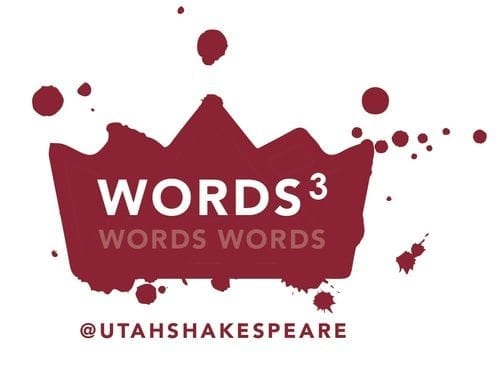CEDAR CITY — Though the new play development series at the Utah Shakespeare Festival has existed for decades, it still feels like something of a secret to join a handful of loyal patrons wholeheartedly devouring every word being read by actors reading from scripts at 9:30 in the morning. This year, two playwrights, whose scripts were selected from among hundreds of submissions, were invited to Cedar City as part of a week-long development process, complete with professional directors, actors, and four public performances in the Anes Studio Theatre.
It is the perfect setting for new play development. The Anes is the newest and most intimate of the Festival’s spaces, and its black box atmosphere is perfect for this kind of stripped down performance. And thanks to more than a half century of orientations and talkbacks for every performance, longtime Festival patrons have developed a uniquely intense investment in the art they see. Perhaps the greatest legacy of founder Fred Adams is a glowing respect for patrons who (in Fred’s belief) loved theatre and talking about it just as much as he did. In a moment where venerated performance institutions are quaking or even tumbling down, it is heartening to see an audience entrench themselves in a 10-minute of debate about a single line of text read by an actor from a script propped on a music stand.
Despite the small audience, the hours and resources the Festival puts in annually to these new works stand as a visible manifestation of a commitment to not just restaging classics, but also to cultivating and investing in the future of the art form. One can only hope that one day Derek Charles Livingston (the Director of New Play Developments and current interim Artistic Director at the Festival), will be able to expand the development new plays selected each year into full productions so that they may be enjoyed by more expansive audiences. At least one of the selections for 2023 is ready to make the leap from reading to full staging. Perhaps not coincidentally, the two plays chosen this year share a theme of examining the costs of objects as measured against and by the people who own them.
Horse Thief
Horse Theif by Los Angeles-based playwright Christine Whitley is a one-act western romance focused on the tempestuous relationship between the spirited horse breeder Mary and her former lover, the flawed, but soft-hearted farm-hand Dutch. The reading by actors Jasmine Bracey and Nathan Hosner imbued more magic and power into the script than Whitley may have earned. Though set in the “not too distant future,” the script’s gun smoke and villains on horseback feel at odds with modern plot options, like calling 911. It felt as if the time period was an after thought, or still under consideration by Whitley. Indeed, the former lovers feel as if they were written as living in different centuries and it was difficult to understand from the obscure references in the script what exactly brought them back together in this moment of crisis. During the talkback, it was mentioned that the play was born from a single image and a line of text that came to Whitley almost like a dream, and that dreamlike quality has been maintained in the current version of the script. But what dreams have in beauty, they can often lack in clarity, logic, and detail when retold. Though much of the audience seemed to warm to its tame romance, Horse Thief is still a work in progress that may need some additional breaking before it is ready to ride into a full production.
The Value
In contrast, The Value, by Nicholas Dunn of Salt Lake, is an exhilarating and provocative exploration of the intersections of class, capital, art and love. In two tight acts, Dunn weaves together the lives of four characters hiding out in the aftermath of their planned art heist. True to life, now that the painting has been lifted by this gaggle of first time art thieves, no quite knows how to proceed. This lack of experience allows the audience to put themselves easily into the character’s minds and creates laugh-out-loud of comedy that balances the dramatic circumstances. The humor also prevents the weighty themes from feeling onerous. Dunn provides the audience no easy answers or clear agenda as the characters wrestle about what they should do next. As they begin to cast judgement on one another, one character reminds them all, “We’re all thieves here,” and in the silence that rang out, it was clear that the audience too had been implicated in that pronouncement. As ever, the actors, though doing little more than moving a step or two or raising their hands for important gestures, heighten the drama and comedy of the script with their skilled readings. Especially poignant were Tim Fullerton as McEvoy (the man who commissioned the heist) and Marco Antonio Vega as Vic (the bumbling younger brother who is need of quick cash). Dunn has drawn these characters with enormous nuance and cleverly structures his revelations to keep the audience on the edge of their seats throughout. At $10 per ticket, sitting in on this reading was definitely a steal.
While the 2023 Words3 New Play Series has closed for this year, there will be new works selected for readings next August. Information about submitting a new play is available here. Additionally, full Festival productions continue to run until October 7. It is not too late to take in a performance or two of one of the strongest seasons of theatre at Utah Shakespeare Festival in memory.
[box]For information about productions at the Utah Shakespeare Festival, visit bard.org.[/box]

